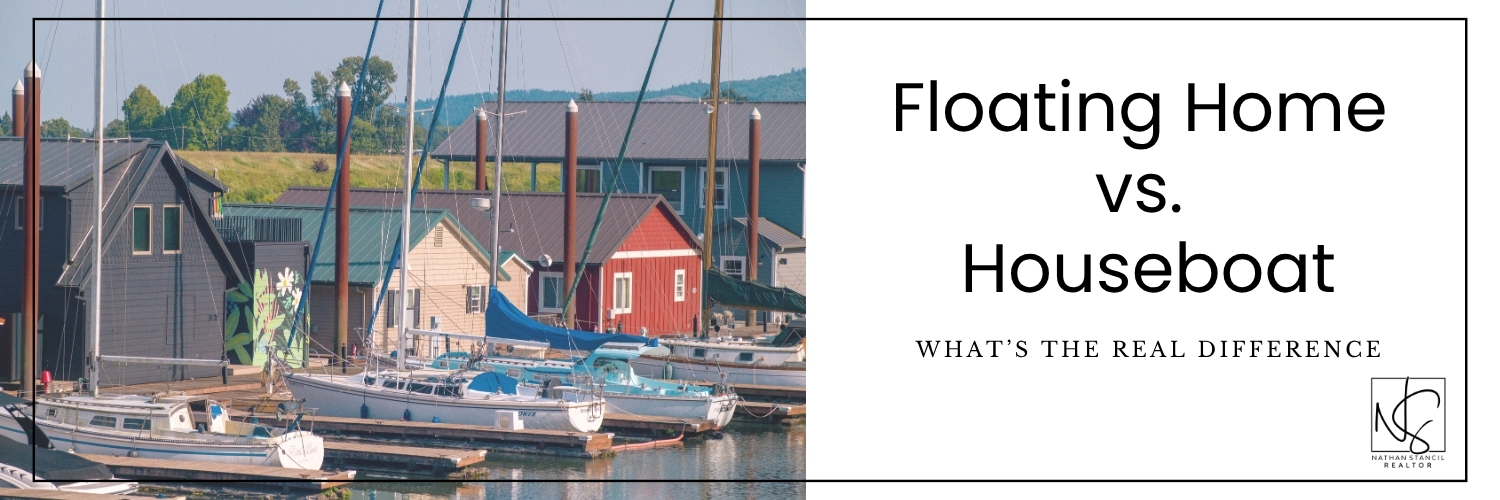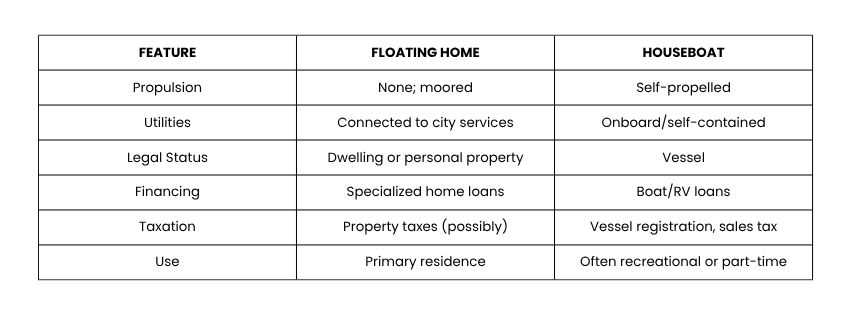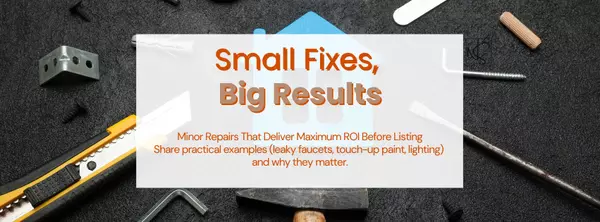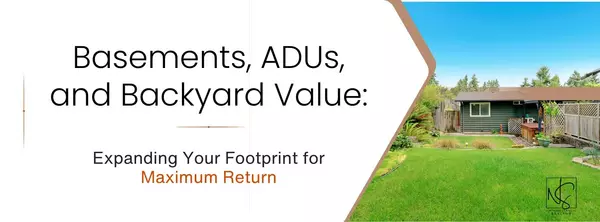Floating Home vs. Houseboat: What’s the Real Difference

Not all homes on the water are created equal. If you’re dreaming of life on the Columbia or Willamette, understanding the distinction between floating homes and houseboats is a crucial first step. The two terms are often used interchangeably in casual conversation, but when it comes to lifestyle, legal status, financing, and even insurance, they couldn’t be more different.
Floating Homes: Stationary, Residential, and Community-Based
A floating home is a permanently moored residence that remains fixed in place year-round. Think of it as a house that floats, typically connected to municipal water, sewer, and electric utilities. These homes are designed for long-term residential use and often located in designated moorages or marinas.
-
Utilities: Fully connected to city systems (water, sewer, electricity)
-
Location: Stationary in a dedicated slip, often part of a moorage community
-
Use: Primary or secondary residence
-
Legal Status: Real property or personal property depending on slip ownership
Floating homes can range in size from modest cottages to multi-story, custom-built homes exceeding 2,000 square feet. In Portland and Vancouver, they’re subject to specific local building codes, inspections, and HOA or moorage regulations.
Houseboats: Self-Propelled and Mobile
A houseboat is a vessel—it floats, but it also moves. Houseboats are self-propelled (or designed to be) and considered marine vehicles under the law. While some people live on them full time, they’re often more recreational in nature.
-
Utilities: Often rely on onboard systems; may use marina hookups when docked
-
Location: Can be docked in recreational marinas or anchored temporarily
-
Use: Recreational or part-time living
-
Legal Status: Marine vessel, not a dwelling under most housing codes
Quick Comparison Table

Why the Difference Matters
Misunderstanding these categories can have big implications:
-
Financing: Floating homes may qualify for home loans; houseboats typically don’t.
-
Insurance: Requires different coverage types and underwriters.
-
Zoning and Rules: Floating homes are subject to city building codes and moorage rules; houseboats fall under maritime law.
-
Lifestyle Fit: Floating homes offer stability and community; houseboats offer mobility but fewer amenities.
The Bottom Line
If you’re seeking year-round waterfront living in Portland or Vancouver with access to community, stability, and long-term value, you’re probably looking for a floating home. A houseboat, while charming, usually caters to short-term stays or recreational use.
Learn more about this from our guide.
Categories
- All Blogs (25)
- Buyer & Seller Tips (2)
- Buyer Tips (4)
- Environmental Hazards (1)
- Floating Homes (4)
- Green Homes (1)
- Home Buying (2)
- Home Improvement & Remodeling (1)
- Home Improvement ROI (2)
- Home Preparation (2)
- Home Selling (8)
- Home Selling Tips (2)
- House Improvement (1)
- Inspection (1)
- Market Strategies (1)
- Market Trends (1)
- Market Updates (2)
- Portland (10)
- Portland Market Advice (1)
- Portland Market Insights (1)
- Portland Real Estate (3)
- Portland Real Estate Market (1)
- Real Estate Advice (1)
- Real Estate Investment Tips (1)
- Real Estate Tips (13)
- Seller Advice (1)
- Seller Preparation (1)
- Sustainability in Housing (1)
- Vancouver Real Estate (1)
Recent Posts










